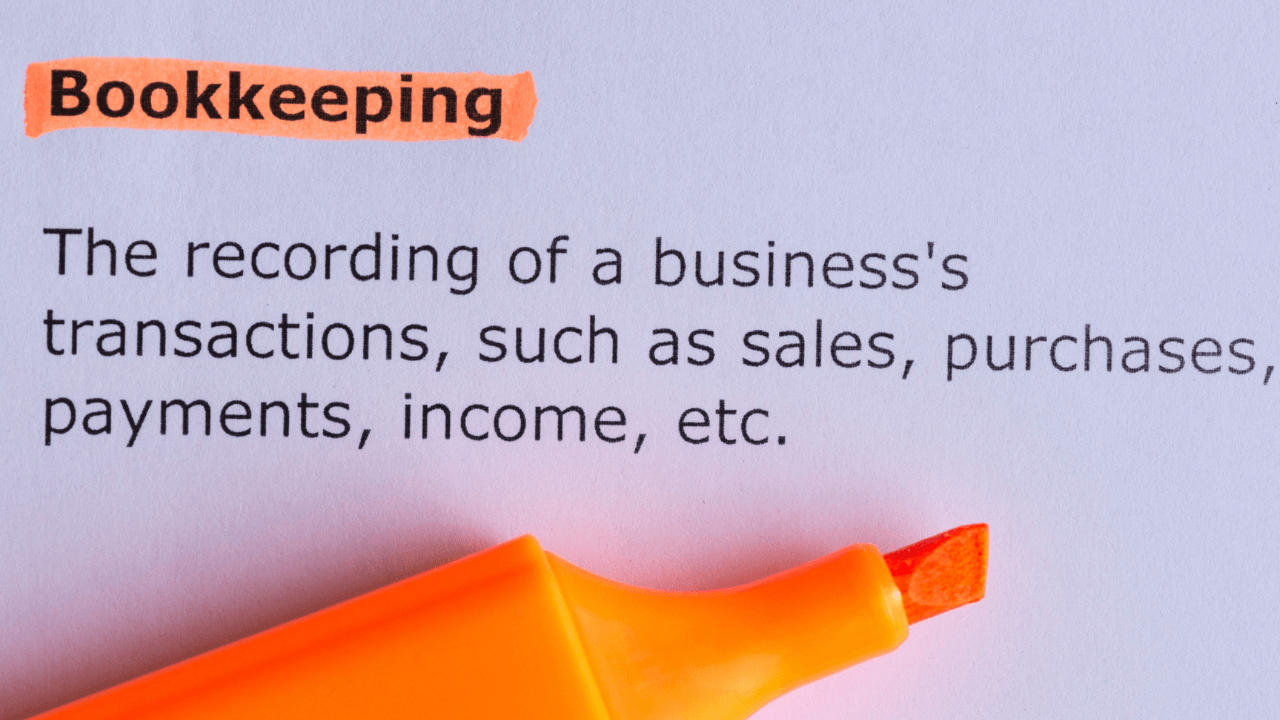Language:
DIY Bookkeeping Tools and Resources for Small Businesses

As a small business owner, bookkeeping may not be at the top of your priority list. However, it is an essential aspect of running a successful business.
Proper bookkeeping helps you keep track of your finances, understand your cash flow, and make informed decisions about the future of your business. While hiring a professional bookkeeper may seem the easiest option, it can also be expensive for small businesses.
So, if you want to take control of your finances without breaking the bank, look no further!
This blog post will explore some of the best bookkeeping tools and resources to help streamline your accounting process and keep your business on track.
Whether you’re a seasoned entrepreneur or just starting out, these budget-friendly solutions will revolutionize how you manage your finances.
Say goodbye to expensive accountants and hello to financial freedom with our top picks for small business bookkeeping tools!
What Is DIY Bookkeeping?

Bookkeeping is essential to running a small business, as it involves tracking and managing the company’s financial transactions. As a small business owner, you may decide whether to outsource your bookkeeping needs or handle it yourself.
DIY (Do-It-Yourself) bookkeeping refers to managing your own financial records instead of hiring a professional accountant or bookkeeper. With advancements in technology, various tools and resources are now available, making it easier for small business owners to manage their own bookkeeping needs.
Outsourcing your bookkeeping means hiring a professional or agency to handle all aspects of your financial records. This can include tasks such as recording transactions, reconciling accounts, generating reports, and preparing tax documents.
Outsourcing can give you peace of mind while freeing up time for you to focus on other aspects of your business.
However, outsourcing does come at a cost. Additionally, communication with an outsourced bookkeeper may not always be as immediate or personalized as doing it yourself.
On the other hand, the benefits of DIY bookkeeping are more lucrative to small business owners who want full control over their finances and save money on outsourcing fees.
Therefore, outsourcing may be the best option if you have a complex business structure or limited time and resources.
However, if you are organized and willing to invest the time to learn basic bookkeeping principles, DIY bookkeeping can save you time and money in the long run.
Benefits of DIY Bookkeeping for Small Businesses

A dedicated bookkeeping platform you can use is a great way to save money, gain more control over your finances, and understand your business’s financial health. With various online resources and tools available, it has become easier for small business owners to find tools that suit their operations and finances.
1. Cost Savings
Hiring a professional bookkeeper or accountant can be expensive, especially for small businesses that are just starting out and may not have a large budget for such services.
By taking on the bookkeeping task, you can save money and allocate those funds toward other business areas.
2. Increased Control and Flexibility
When you handle your own bookkeeping, you have full control over how your financial records are organized and managed.
You can customize your system to fit the specific needs of your business instead of conforming to someone else’s methods.
3. Better Understanding of Finances
DIY bookkeeping requires you to be more hands-on with your business’s finances, leading to a better understanding of where your money comes from and where it goes. This knowledge is crucial for making informed decisions about budgeting and expenses.
It also allows you to identify any potential financial issues early on so that they can be addressed promptly.
4. Time Efficiency
Outsourcing tasks like bookkeeping may initially seem like it saves time; however, constantly communicating with an external party and waiting for updates or reports can actually slow down processes in the long run.
With DIY bookkeeping tools and resources available online now more than ever, managing your books has become much simpler and less time-consuming.
5. Improved Accuracy
Bookkeepers or accountants are human, too, which means they are prone to making mistakes. With DIY bookkeeping, you have complete control over your financial records, reducing the risk of errors.
Many bookkeeping software and tools also have built-in checks and balances to prevent mistakes.
Essential Tools and Software for DIY Bookkeeping

The right tools and software are crucial for DIY bookkeeping, making the process more efficient, accurate, and manageable.
With various options available in the market, it’s essential to research and find what works best for your business needs and budget.
📊 Spreadsheet programs (Excel, Google Sheets)
Spreadsheet programs like Excel and Google Sheets are powerful tools that can greatly benefit small businesses by streamlining their bookkeeping processes.
They allow users to organize and analyze financial data in a structured manner, making it easier to track expenses, create budgets, and generate reports.
With their user-friendly interfaces, customizable templates, and advanced features, small business owners can easily create customizable spreadsheets for various purposes.
This includes tracking income and expenses, creating invoices, managing inventory levels, and forecasting future financial trends.
Another key benefit is their ability to handle large amounts of data efficiently. Small businesses dealing with high volumes of transactions can keep all their financial information in one place without needing multiple sheets or documents.
Additionally, they allow easy data sorting and filtering, making it simple to find specific information when needed.
Both programs are cloud-based, meaning you can access your spreadsheets from anywhere with an internet connection. Furthermore, Google Sheets enables real-time collaboration between team members, which can be helpful when working on joint projects or delegating bookkeeping tasks.
Excel and Google Sheets offer templates specifically designed for accounting purposes for those new to bookkeeping or unfamiliar with spreadsheet programs.
These templates provide a framework for organizing financial data and often include pre-built formulas that automatically calculate totals or perform other calculations.
However, the true power of these spreadsheet programs lies in their advanced capabilities, such as pivot tables and macros. Pivot tables allow users to summarize large datasets quickly and easily, while macros automate repetitive tasks like formatting or data entry.
Even novice users can learn how to use these functions through online tutorials or training courses specifically tailored to bookkeeping.
📊 Accounting software (QuickBooks, Xero)
Accounting software has revolutionized the way small businesses manage their financial records. Gone are the days of manual bookkeeping with stacks of paper and endless calculations.
Now, you can opt for various accounting software options to automate mundane bookkeeping tasks for small businesses.
Two popular accounting software programs that have gained popularity among small business owners are QuickBooks and Xero.
These programs offer a wide range of features and tools to help streamline bookkeeping processes, making it easier for small businesses to track income and expenses and manage their finances effectively.
QuickBooks is a comprehensive accounting software program designed for small businesses. It offers invoicing, payroll management, inventory tracking, and financial reporting features.
This user-friendly program allows business owners to easily enter transactions, reconcile bank accounts, and generate customized reports to gain valuable insights into their financial health.
One key advantage of QuickBooks is its integration capabilities with other business applications, such as payment systems and time-tracking tools. This makes it easier for business owners to automate tasks and save time on manual data entry.
Additionally, QuickBooks offers a mobile app that enables users to access their financial information on the go.
Xero is another popular accounting software choice among small business owners. Like QuickBooks, Xero offers various features, including invoicing, bank reconciliation, inventory tracking, and financial reporting.
Another major advantage of both QuickBooks and Xero is their cloud-based nature. They offer secure online storage for all financial data accessed from anywhere with an internet connection, giving business owners real-time access to their financial information.
📊 Expense tracking apps (Expensify, Receipt Bank)
Without proper expense tracking and management, it can become challenging to accurately assess your business’s financial health and make informed decisions about budgeting and spending. Fortunately, you can choose various available expense-tracking apps to help streamline this process.
Expensify is an all-in-one expense management app that allows users to scan receipts, track mileage, create expense reports, and even manage corporate credit card expenses.
Its user-friendly interface makes it easy to categorize expenses and attach receipts directly from your phone’s camera or email.
On the other hand, Receipt Bank is primarily focused on receipt scanning and data extraction. This app uses OCR (optical character recognition) technology to automatically extract relevant information from receipts.
It also offers a feature called “Fetch,” where users can link their bank accounts, credit cards, or online shopping accounts for seamless retrieval of digital receipts.
One significant advantage of these expense-tracking apps is their ability to save time in manual data entry while minimizing human error in manually recording expenses.
By automating the process through scanning receipts or linking accounts for digital receipt retrieval, businesses can focus on other essential tasks without worrying about falling behind on bookkeeping.
Furthermore, Expensify and Receipt Bank provide detailed reports and analytics, helping small business owners better understand their spending patterns.
This information can be crucial for budgeting and identifying bookkeeping and accounting errors.
📊 Free Resources for DIY Bookkeeping
DIY bookkeeping is a cost-effective and efficient way for small business owners to manage their finances. Fortunately, in today’s digital age, numerous free resources are available for learning bookkeeping.
These resources range from online courses and tutorials to downloadable templates and software. Therefore, you can easily acquire the necessary skills to keep your books in order.
1. Online Courses
Small business owners often wear multiple hats and have busy schedules, making it challenging to attend regular classes. With online courses, individuals can access the material whenever it is most convenient for them – whether that be during evenings or weekends.
This allows for a more personalized learning experience that can fit seamlessly into one’s busy life.
Several websites, such as Coursera, Udemy, and Alison, offer free online courses on bookkeeping.
These courses cover various topics related to bookkeeping, including basic accounting principles, recording transactions, creating financial statements, and more.
2. YouTube Tutorials
Apart from formalized courses, countless tutorials covering specific bookkeeping tasks or software programs are available on platforms like YouTube.
They are perfect for those who prefer a more hands-on approach to learning or need quick answers on how to perform certain bookkeeping tasks.
You can find multiple channels and tutorial videos dedicated to providing step-by-step tutorials on different aspects of bookkeeping. Some popular channels include Bookkeepers Hub and Bean Ninjas.
3. eBooks and Guides
eBooks and guides can be incredibly useful resources for small businesses regarding DIY bookkeeping. These digital materials provide step-by-step instructions, tips, and advice on how to manage your business finances effectively.
EBooks and guides can offer valuable insights and strategies, whether you are just starting with bookkeeping or looking for ways to improve your current practices.
One of the main benefits of eBooks and guides is that they are usually more affordable than traditional books or courses on bookkeeping. In fact, many eBook platforms offer free or low-cost options, making them accessible to even the smallest of businesses.
Also, there is no shortage of options available since you can easily find an eBook or guide online for almost any aspect of bookkeeping you may need help with.
4. Community forums and support groups
Community forums and groups like the Small Business Administration (SBA) provide a wealth of knowledge and support from fellow entrepreneurs with DIY bookkeeping experience.
Many times, small business owners may feel isolated while managing their own finances. However, they can tap into a network of individuals who understand the struggles and can offer valuable advice.
These forums also serve as a platform for asking questions and receiving guidance on specific bookkeeping tasks or software tools. In addition to practical tips and advice, community forums and support groups provide a space for small business owners to share their successes and failures.
By hearing real-life examples from other entrepreneurs, small business owners can gain insight into what works and doesn’t work in managing finances.
Moreover, these online communities often have designated areas for sharing resources such as templates, spreadsheets, and tutorials to aid DIY bookkeeping efforts.
However, they should not be relied upon as a substitute for professional financial advice. So, it’s best to consult a certified virtual bookkeeper for complex financial matters.
Excel in DIY Bookkeeping With doola

DIY bookkeeping can be daunting for small business owners, especially if they have little to no prior knowledge or experience in accounting. It requires careful attention to detail and organization to accurately track and manage a business’s finances.
Luckily, doola equips you with all the necessary tools and resources to handle your bookkeeping easily.
Get started with our doola Bookkeeping to organize all your financial information in one place, making it easier to manage and track your expenses. Features like automated bank feeds and easy transaction categorization can save you valuable time when it comes to manual data entry.
With our Total Compliance Package, you get access to advanced invoicing and bookkeeping features and built-in tax calculation and compliance capabilities to ensure that your books are accurate and up-to-date for seamless tax filings.
Book a free consultation today to take the first step towards financial freedom and business growth!
Keep reading
Start your dream business and keep it 100% compliant
Turn your dream idea into your dream business.













